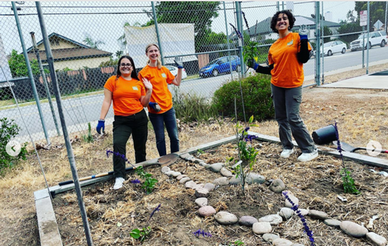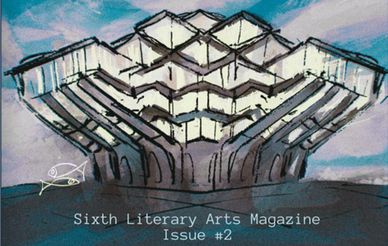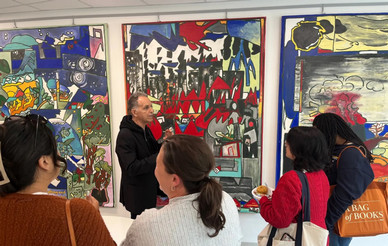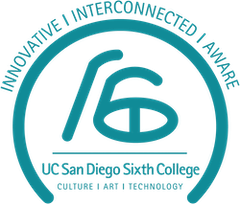Culture, Art, and Technology
CAT: Analyzing cultural production through critical, interdisciplinary inquiry.
Culture, Art, and Technology (CAT) at Sixth College includes our interdisciplinary writing program and the experiential learning program. We take a Cultural Studies lens to past, present, and future intersections of technology, art, and cultural production in order to empower students to think and engage critically in our contemporary world.
CAT's Core Values
Both the Writing Program and the Experiential Learning Program speak to CAT's fundamental values and the mission of Sixth College.
-
Cultural-Historical Narrative Practices: We believe that understanding how we narrate history is critical to understanding and critiquing our contemporary moment. Our core sequence moves students through past, present, and imagined future intersections of art and technology.
-
Creativity and Critical Thinking: We believe in the deep necessity of creativity and critical thinking to shape better worlds. Our writing and experiential learning courses foreground critical thinking and creativity to foster imagination and engagement.
-
Curiosity: We believe curiosity is fundamental to developing lifelong learners. Our writing and experiential learning courses empower students to find and act upon their own curiosity and creativity. We encourage them to question, analyze, and interact with the world around them in pursuit of finding ethical solutions to the challenges it presents.
-
Community: We believe that fostering a diverse and equitable community of learners and thinkers is essential to create more inclusive and just communities. Our writing and experiential learning courses foreground a diversity of perspectives with the hope that students will cultivate empathy for others, develop a sense of belonging, and pursue a lifetime of responsible citizenship.

Digital Humanities at Sixth College
Bridging the gap between the humanities and digital technologies
The CAT program is proud to present a digital archive of student projects alongside a curated collection of tutorials. Whether you’re exploring new ways to tell stories, conduct research, or push the boundaries of academic expression, these resources will spark your creativity and guide you in navigating today’s digital landscape.
Non-Discrimination Statement
In accordance with applicable federal and state law and with university policy, the University of California does not discriminate, or grant preferences, on the basis of race, color, national origin, religion, sex, disability, and/or other protected categories.
More information about Proposition 209 can be found here.
More information about the University of California Anti-Discrimination Policy can be found here.



